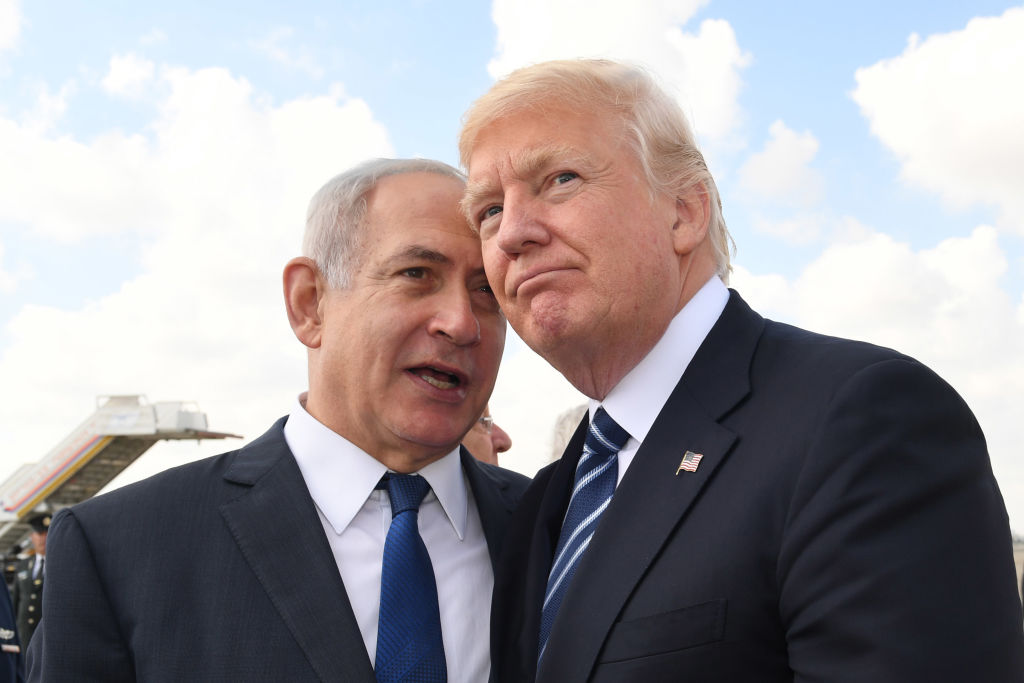If Donald Trump becomes president again — which seems likely — American policy towards Israel could see a dramatic shift. Since the war between Israel and Hamas started last October, Trump has repeatedly expressed his support for Israel. The head of the Republican Jewish Coalition claimed that Trump would grant Israel “a blank check” to finish off Hamas. Trump also warned that if Hamas doesn’t release the hostages, they’ll “pay a big price” if he becomes president.
Many Israelis, including those in government, assume that a Trump/Vance win would be beneficial for Israel. A closer look shows that it may not necessarily be so.
When the war against Hamas started, president Joe Biden sent considerable American forces to the region. When Iran struck in April, by firing hundreds of missiles and drones against Israel, American forces played a pivotal role in protecting Israel. American forces routinely intercept missiles launched by the Houthis too. Biden also oversaw the supply of massive, continuous shipments of weapons and vital equipment to Israel during the war, as well as a very generous aid package.
Would Trump have acted similarly? Perhaps. But Trump’s approach has had a tendency for isolation. His chaotic — often impulsive — foreign policy legacy includes withdrawing from international agreements and forcing worse terms on smaller member states.
Trump may choose to avoid making long-term strategic commitments, and instead push Israel to rely on building partnerships with regional countries for running and rebuilding Gaza after the war and dealing with the Iranian threat. If Israel does collaborate with Middle Eastern partners, including Egypt, Saudi Arabia and the United Arab Emirates, American involvement will still needed to bring together old enemies in a successful collaboration. Stopping Qatari and Iranian funding of terrorism in the Middle East and beyond, as well as preventing Iran from developing nuclear weapons, would also be much more effective with American involvement.
However, Trump isn’t a traditional isolationist. He’ll keep pursuing international involvement if he believes that it serves American interests, as well as his own. He would love to be hailed as the person who not only ended the war in Gaza but who also brokered a peace deal between Israel and a Palestinian leadership.
Although Netanyahu and Trump enjoyed a good relationship in the past, relations have soured after Netanyahu congratulated Biden on his win in 2020. Trump referred to Netanyahu as a “loser,” accused him of “betrayal” and criticized his handling of the war. Trump has openly said that others within Israeli politics are better suited to lead the country. He also argued that Netanyahu has no intention of making peace with the Palestinians. Netanyahu is currently trying to repair relations with Trump, but a deep lack of trust and respect will make this difficult.
Trump doesn’t have Biden’s long term commitment to the Jewish state. His is a far more utilitarian stance. Therefore, in trying to force a (so far) defiant Netanyahu into a ceasefire deal with Hamas, Trump may place greater pressure on Netanyahu than Biden has — and will be more likely to act on his threats.
Israelis who support Trump should also remember that although the former president was quick to point the finger at Biden’s Iran policy as the reason behind Hamas’s October 7 attack, it was his own withdrawal from the Iranian nuclear agreement (pushed by Netanyahu’s short-sighted advice) that has resulted in Iran getting much closer to having the bomb. Although it was a bad deal to begin with, withdrawing from it has made matters worse.
Trump and Vance’s help to Israel may be more limited
Trump’s choice for vice president, J.D. Vance, should particularly worry Israel. Although the devout Christian has much sympathy for Israel, Vance is a true “America First” isolationist. His approach means that any American intervention must be done only to the extent that it serves narrow American interests. He would be reluctant to risk involving American forces in wars in the Middle East.
Vance has also objected to the American aid package to Israel and Ukraine that included $4 billion to replenish Israel’s depleted missile defense systems. Although his main objection was aid to Ukraine, he was willing to sacrifice critical aid to Israel to get his way.
Trump and Vance’s help to Israel may therefore be more limited. Hallowed threats will not help Israel fight enemies that seek to destroy it. Withdrawal of forces and a lack to true commitment to defend Israel could embolden its rivals. A new American leadership will require new strategic thinking from Israel.
Israelis are rightfully worried that Joe Biden isn’t fit to be president — and he may indeed choose to step aside. But Trump isn’t the better option.
This article was originally published on The Spectator’s UK website.


























Leave a Reply